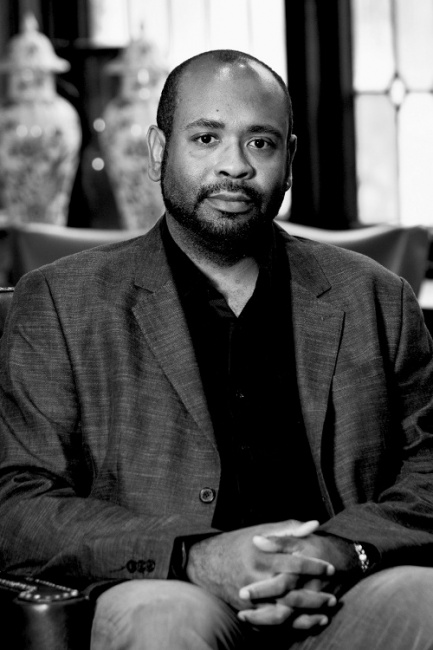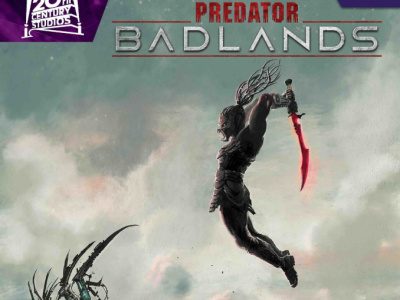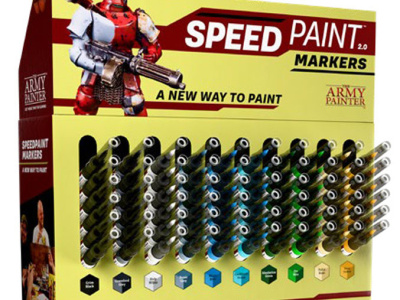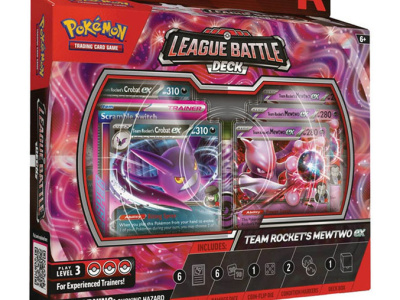We reached out to Lion Forge CEO and co-founder (with Carl Reed) David Steward II to find out more about the company, which has hired a major roster of management and editorial talent over the past several years and is gearing up publishing across categories.
In Part 1 of this two-part interview, we talk about the origins of Lion Forge, its financing, the company’s editorial goals. And in Part 2, we talked about the kids graphic novel market, Steward’s views of the superhero business, lessons learned from the company’s early years, and expanding into games.
ICv2: Tell us about your background before Lion Forge and what led you to start it.
David Steward II: After graduating college, I always had a strong passion for visual arts and mainly focused on photography. Soon after I graduated, I worked and started a business that was focused on doing media.
We were doing photography, we were doing production work, we were doing animation, website design, all kinds of stuff back in the early 2000s. From there, designed for about five years. That's where I initially met Carl where we worked together.
I got a job offer to work with a media company in Los Angeles to produce films. At that time, we shut down the business and all went our separate ways. I went out there to pursue that. Soon afterwards, Carl came out to work in the animation industry.
That opportunity for me didn't work out for the long term. I was there for about a year, then soon transitioned over into doing private equity.
That was the Chi Rho Group?
Yeah, exactly. That started my education at least in consumer products. At the time, we purchased some consumer products and built a brands company around that. It was also during the course of the 2008 economic downturn, as well [laughs], so it was interesting times to be in that particular field doing those things. Around 2010, we decided to sell the company and the assets.
About that same time, I came across and started getting into comics through digital. Growing up, I didn't have access to a comic book store readily, so for me getting content was hard. It's not like now where everything's at your fingertips; you have Amazon and everything else. While my exposure was limited, it was always something that was cool and fascinating for me, and to now be able to get into comics through digital was great. It allowed me to be able to start at the beginning and allowed me some direction in terms of what to read next and the marketplace. It was a great tool to get started. With that, and then as I was coming out of the business, I was looking at the next opportunity and saw there was some opportunity here in digital.
Again, this is around 2010, 2011 when digital was a huge surge. I got together with Carl again, who was moving from L.A. back to St. Louis, where I was, coming out of the animation industry, and started talking about some of the opportunities here, especially within comics with this new digital paradigm.
We started the process of forming Lion Forge. Initially, before we even started the company, we got together and went around to all the major conventions. We hit C2E2, San Diego and New York, all with an eye of looking at what's going on in the marketplace. What's digital actually doing?
At the time, it was poised to disrupt and change how the industry is shaped. We also got a look at what's going on from a content perspective. What's popular right now? What's not being served up in the marketplace that people might be interested in? We tried to figure out what kind of content we could produce in a marketplace that has so much content. How can we be unique and market ourselves and have a unique value proposition for the consumer?
We decided to form Lion Forge. Initially we started as a digitally-focused company, meaning that our purpose was to create digital content first, utilize that marketplace to figure out what content people were responding to and what was popular, and then, from there, we were going to print content based on the popularity that was driven by the digital.
That's initially how we started. Fast forward a few years from there, of course, digital plateaued.
Looking back at ICv2’s coverage, one of the first times we covered Lion Forge was when you had picked up a group of licenses and were doing digital-first comics with them (see "NYCC Digital Roundup"). Were those the first comics you published?
Exactly. That was our first media; kind of our coming-out party was the fact that we got the NBCU licenses. We were doing Knight Rider, Saved by the Bell, Punky Brewster, and Miami Vice. That put us on the map because initially, quite literally when we first started, we were an unknown quantity. People were unwilling to work for an unknown quantity.
It got us out in the marketplace and got people interested in finally wanting to work with us, especially from a creative standpoint. It was very helpful for us. That deal was very helpful for us in getting everything started.
That was around 2012 or '13?
I think it was 2013, that summer.
Lion Forge was coming to ICv2’s conferences a lot. Was that around the same time?
Yeah, we actually have been going to ICv2 since the beginning, since that first time we were even thinking about going into the comics industry. We wanted to get some information.
You have to understand, I'm coming out of the CPG [Consumer Packaged Goods] space, where there is a plethora of information on various products, and placement, and competition, and all kinds of things. If I wanted to create a product, there's a lot of information to be able to model things by.
In the comics industry, ICv2 is pretty much the only place to get any kind of information on what's going on. What are the market trends? What's popular? Where are things going?
For us, that information every year was invaluable. That formed the basis of how we even modeled and put together our business.
When you were doing those licensed titles, you were doing digital first, and then you had a deal with IDW to publish print versions?
Around 2014 the market changed. We realized we needed to very much, very quickly, start printing our books and focusing on the print market versus the digital, switching around our strategy.
We initially did a publishing agreement with IDW. We did that for about a year and we realized very quickly that our size and what we were trying to do didn't really match with what their capacity was to be able to publish with us.
At the end of that year, we started laying the groundwork and putting in the print infrastructure and started growing that infrastructure piece out. From there, we were about 12 people. Fast forward three years later, now we're at about 60 people within our organization.
That raises a question. We’ve seen a lot of companies come into the business, but we've rarely seen a company as well financed as Lion Forge. How is the company financed?
It's all self‑financing and growth financing. I was fortunate to have some family success with my father's business in the technology field and that's how we were able to get things started, get things off the ground.
Is that [multi-billion dollar company] World Wide Technology?
Yes.
You started Lion Forge because you were interested in comics. Did you have particular editorial or content goals?
For us, it's always been about looking for opportunities in the marketplace where they’re underserved, and looking at comics as a medium that could encompass a whole host of genres, really thinking widely in terms of what content could be in a comic. That's where we generated our motto from the get‑go, "comics for everyone."
What that means for us is creating a wide variety of diverse content and diverse genre‑based content that has an authentic viewpoint, and making sure we have creative teams that are representative of the content that we're trying to put out. If we have characters that are of a certain ethnicity, making sure that we have creative teams that are reflective of that. If we're going to deal with a certain subject matter, making sure that someone on that creative team has the full understanding of what that subject matter is, so we're not misrepresenting anything at any point in time.
We're always looking at things to put into comics that you wouldn't think of as traditional comics. In addition, as I mentioned, it’s "comics for everyone," so we do have some more traditional things like our superhero universe.
We always try to look at a broad swathe and we want anybody that is interested in reading comics to be able to come to our company and look at our content and find at least one book for them.
Around 2016, you seemed to take another jump and that's when we covered in the middle of the year that you'd promoted Geoff Gerber and hired Rich Johnson and Syndee Barwick. Mark Smylie came on board, and Joe Illidge, Devin Funches (see "Lion Forge Staffs Up"). Was that when you decided to gear up for the print market?
Yeah, that was part of the big expansion into the print market, getting our legs under us and getting the right talent on board that had the necessary ability and experience to get us where we needed to go.
The obvious areas of expansion more recently have been into the younger readers market. You've hired a bunch of editors in that space and really seem to be pushing into that market, which is a big growth area. Was that something that you decided to do later or was that just a general expression of your goal to publish "comics for everyone" and kids are part of that?
It's definitely an expression of that. One of the things we've tried to do as well, if we're going to be "comics for everyone," and if we're going to be inviting to people that have read comics and people that have not read comics, is that we want to make sure that it's easy for them to be able to jump in.
We've organized ourselves in a manner that I feel is easy for people to find the content that would be most appropriate for them. We've devised age imprints with Lion Forge being for adults, Roar for the YA audience. Now we have Caracal because we subdivided recently, this year, the kid's market space. Caracal is our middle grade imprint and CubHouse is our younger readers imprint. At each one of those points, the content changes and is slightly different and modified for that appropriate age group's reading level, as well as the content that they would essentially be interested in.
It also helps us to see where we're placing and producing content so that we have a good mixture over the whole organization in terms of balance amongst what we're publishing.
Click here for Part 2.
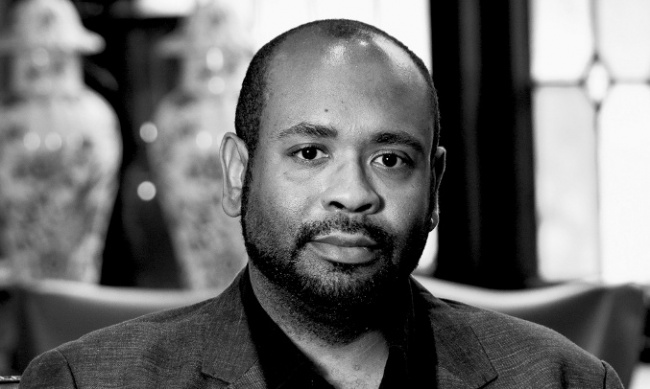
Starting Lion Forge, the Company's Financing, Editorial Goals, and the Kids Market
Posted by Milton Griepp on August 30, 2018 @ 4:55 am CT
MORE COMICS
Mecha, Mystery, and Martial Arts from Famed Hong Kong Artist
August 22, 2025
Veteran Hong Kong artist Seto mixes martial arts, robots, and a quest for missing scientists in his new graphic novel.
Around November Movie Release
August 22, 2025
Marvel Comics will release Predator: Badlands #1 in November, around the release of the movie.
MORE NEWS
New Paint Markers Feature Speedpaint 2.0 Formula
August 22, 2025
The Army Painter revealed Speedpaint Markers , new paint accessories.
Featuring Mewtwo ex
August 22, 2025
The Pokemon Company International will release Team Rocket's Mewtwo ex League Battle Deck , for Pokemon TCG.



